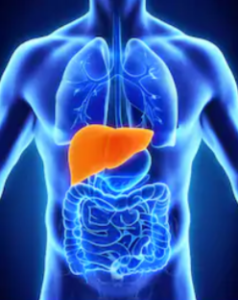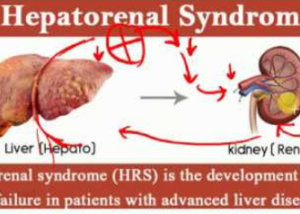
Liver disease can cause a strong body odor, but just what does this mean?
What body part does this stink come from? Is it the entire body or some localized area like the armpit?
You may have read online references to “body odor” when it comes to liver disease, but not much more information than that.
When liver disease causes a change in body odor (regardless of the type of odor), a specific region of the body emits this.
“The odor is caused by the inability of the liver to break down proteins correctly,” says Jeffrey Fine, MD, chief of gastroenterology at the Medical Surgical Clinic of Irving.
“It’s coming from the lungs through the mouth. It’s seen in portal hypertension, where there’s significant portosystemic shunting.”
In portal hypertension there is increased blood pressure in the portal vein, which carries blood from the digestive organs to the liver.
This elevated pressure often results from liver diseases, such as cirrhosis, where scarring blocks blood flow and forces the blood to find alternative routes.
The increased pressure can lead to complications like variceal bleeding (enlarged veins that can rupture), ascites (fluid accumulation in the abdomen) and an enlarged spleen — along with the odor.
A portosystemic shunt means that the vascular connection between the GI tract and liver, due to a pathology, is bypassed (shunted).
“This is a late sign of liver failure,” says Dr. Fine. “Individuals who are experiencing this body odor are in bad shape and should’ve already been seen by a liver transplant hepatologist and surgeon.”
Does it occur even if the patient is NOT perspiring?
Dr. Fine says, “Yes. The odor is caused by the inability of the liver to break down proteins correctly. It comes from the lungs through the mouth.”
You can be a nondrinker and still acquire liver disease. Risk factors for liver disease include excessive alcohol consumption, which can lead to fatty liver disease and cirrhosis.
Viral infections such as hepatitis B and C are also significant contributors, as they can cause chronic inflammation and damage to liver cells.
Obesity and type 2 diabetes increase the risk of non-alcoholic fatty liver disease (NAFLD), which can progress to more severe liver damage.
Certain medications and toxins, as well as a family history of liver disease, can further increase susceptibility.
Can the development of the change in odor occur suddenly, and/or is it usually over a long period of time?
Dr. Fine explains, “The smell can wax and wane, but by the time a person experiences it, they are already in the advanced stages of liver disease.”










































